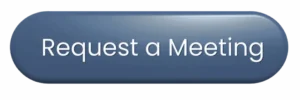An Overview of Microsoft’s Search Coach

Last summer Microsoft announced a new Teams product that would be rolling to education users over the coming school year. That product is called Search Coach and it appears to now be widely available to all Microsoft Teams education users. As its name implies, Search Coach in Microsoft Teams provides students with tips to improve […]
How Graphs Can Be Misleading

Tools like Canva and even good ol’ PowerPoint make it incredibly easy to quickly create good looking graphs. But as Randy Krum points out in his book, Cool Infographics, a graphic that looks good isn’t necessarily a good graphic. In fact, many times a graphic is made to look good in order to distract from […]
Spot the Troll – Can You Spot Fake Social Media Accounts?

Spot the Troll is a quiz game that I recently learned about from Lee LeFever at Common Craft. Spot the Troll was developed by Clemson University’s Media Forensics Lab as a way to educate people about deceptive social media accounts. Spot the Troll presents players with eight social media profiles. Based on the clues […]
Bad News – Interactive Simulation Shows Students How Misinformation is Spread

Bad News is a website that offers simulations that show visitors how misinformation is spread through social media. Bad News is available in two versions. The regular version is intended for those who are high school age or older. Bad News Junior is appropriate for middle school and older elementary school students. The difference between […]
Checkology – Lessons in Being Discerning Media Consumers

Checkology is a website designed to help students learn to be discerning consumers of online, print, and television media. Checkology has a free version and a premium version. This review is only about the free version of Checkology. Checkology’s free version offers four interactive modules for students to complete. Each of the modules is comprised […]
Can You Trust YouTube “Influencers?” – A Media Literacy Lesson

Talk to almost any teenager and you’ll quickly learn that they spend more time watching YouTube videos than they do watching traditional television programming. And many of those teenagers have a favorite YouTube “star” to watch. Some of those stars are being paid thousands of dollars to include products in their videos. That often happens […]
Mind Over Media – New Resource for Teaching Propaganda and Media Literacy

This is a guest post from writer and researcher Beth Holland (@brholland). I first met Professor Renee Hobbs from the Media Education Lab last spring at the SXSWedu conference. She led a fascinating discussion about how to foster media literacy and digital literacy in an age of machine learning and Artificial Intelligence. Towards the end of […]

